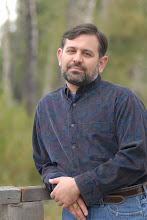My cancer patients often send me links to cures they've found online, or articles they have read on pubmed, the free database of scientific publications. "Do you think this is good for me?" they ask. The answer is easy. It's always the same: "It all depends."
In some patients, a lack of oxidation and free radicals contributes to their cancer, in others, just the opposite. In some patients, a very active thyroid axis--drives the metabolic rate of a cancer. In others, hypothyroidism, signaled by a high TSH level, occurs a few weeks to a few months right before the diagnosis of cancer and plays a role, instead. It's important to understand the various factors that participate in the growth of a cancer.
There are three main factors. First and foremost is genetics. Some people have particular genetic coding that suppress natural anti-cancer activity in the body such as programmed cell death (apoptosis), or over-expresses pro-growth factors such as certain cytokines, or hormones such as estrogen or growth hormone. But every gene is expressed in a certain environment, internal or external, which influences if it is expressed and to what degree it is expressed. So, even when we speak of genetics, we must remmber that there are environmental influences that play a role.
As far as the internal environment, even if a person is not born with genetic factors that are "pro-cancerous" there are certain factors that influence the growth of cells. Broadly speaking we can talk about hormonal (endocrine), nervous system and immune-mediated factors.
Among the hormonal factors, perhaps estrogen plays the most important role because estrogen makes everything grow, not just cancer cells, and not just in women. Some women who use birth control pills, or bio-identical hormones later in life will put themselves at risk for uterine, cervical and breast cancers, especially if progesterone is not used to balance out the estrogen activity. If you like Russian roulette, then this is the way to go for you.
If you don't like the idea of being a statistic, then you should look for natural alternatives to balancing hormones or meeting lifestyle issues regarding birth control. The endobiogenic system I use in my clinic if very well suited to managing hormonal imbalances in women using medicinal plants rather than hormones.
Women who never give birth or breast feed are also at higher risk. Some women chose for religious or personal reasons not to, or cannot for biological reasons give birth or nurse. If you are in this group, consider being evaluated more closely using the endobiogenic approach as well.
High androgens, growth hormone, insulin, Thyroid stimulating hormone (TSH) play important roles, but so does insufficient TSH. Many of these hormones can be stimulated by various nervous system, emotional and immune factors too. They are all inter-related, which is why you can have perfectly balanced estrogen activity and still be at risk for cancer. Slight imbalances in many hormones also put you at risk for cancerous cell growth.
Nervous system activity can get roled up with emotions. Emotions--expressed or suppressed--play a role in cancer too, although I am not saying that sad people or angry people or ungrateful people get cancer and that it's their fault. Plenty of nice people get cancer and plenty of mean people do not. Emotions cause a cascade of hormonal, nervous and immunological reactions in the body which in the right person can support unfettered growth of cells which can eventually become a cancer. It's just physiology, it's not a moral judgment.
Immune imbalances refer to cytokines and other mediators of inflammation, cell growth and blood vessel proliferation. Chronic infections with viruses and fungi are implicated here, but diet plays a role as does insulin and the thyroid system.
Congested or over-worked organs, such as the pancreas, liver, lymphatics, etc. can also play a role in cancer development or spread. So, regular drainage and detoxification of organs with fasts, diets, medicinal plants, homeopathic agents, aromatherapy, etc. are recommended.
The external environment also plays a role--probably and larger and larger role due to the growing toxin burden--in cancer development. Xenoestrogen from plastics and poultry raised on soy, radiation, heavy metals and other factors play a role. We should include chronic low grade infections here, too, like Epstein Bar Virus and Fungus.
Diet, of course can play a role too by influencing all of the above. Our food sources are filled with xenoestrogens, steroids, pesticides and antibiotics. We eat too many pro-inflammatory foods depleted of nutrients, low in omega-3's, stimulating high insulin responses which in turn stimulates more inflammation...
As you can see, there are many factors that can play a role in cancer risk. Some play a smaller role, some larger, but when added up, many small imbalances can create an environment that allows our cells to grow unfettered, which is what cancer is...which is why when my patients ask my about how to prevent cancer. They say, should I become a vegetarian? Participate in triathalons? Meditate? Do yoga? Avoid dairy? Stop hormone therapy...I say, "It depends."
In my practice I have taken care of vegetarians who should should be sainted for their benevolence but they get cancer, and I have grumpy alcoholics who don't get cancer. I have people who do yoga every day with high pre-cancerous activity and lazy slobs who don't have that risk.
There is no single prevention or cure for cancer, no silver bullet. The silver lining, though, is that by getting an individualized evaluation you can focus on what will help you reduce your risk of cancer. One person, one cancer treatment plan.
Subscribe to:
Post Comments (Atom)




No comments:
Post a Comment